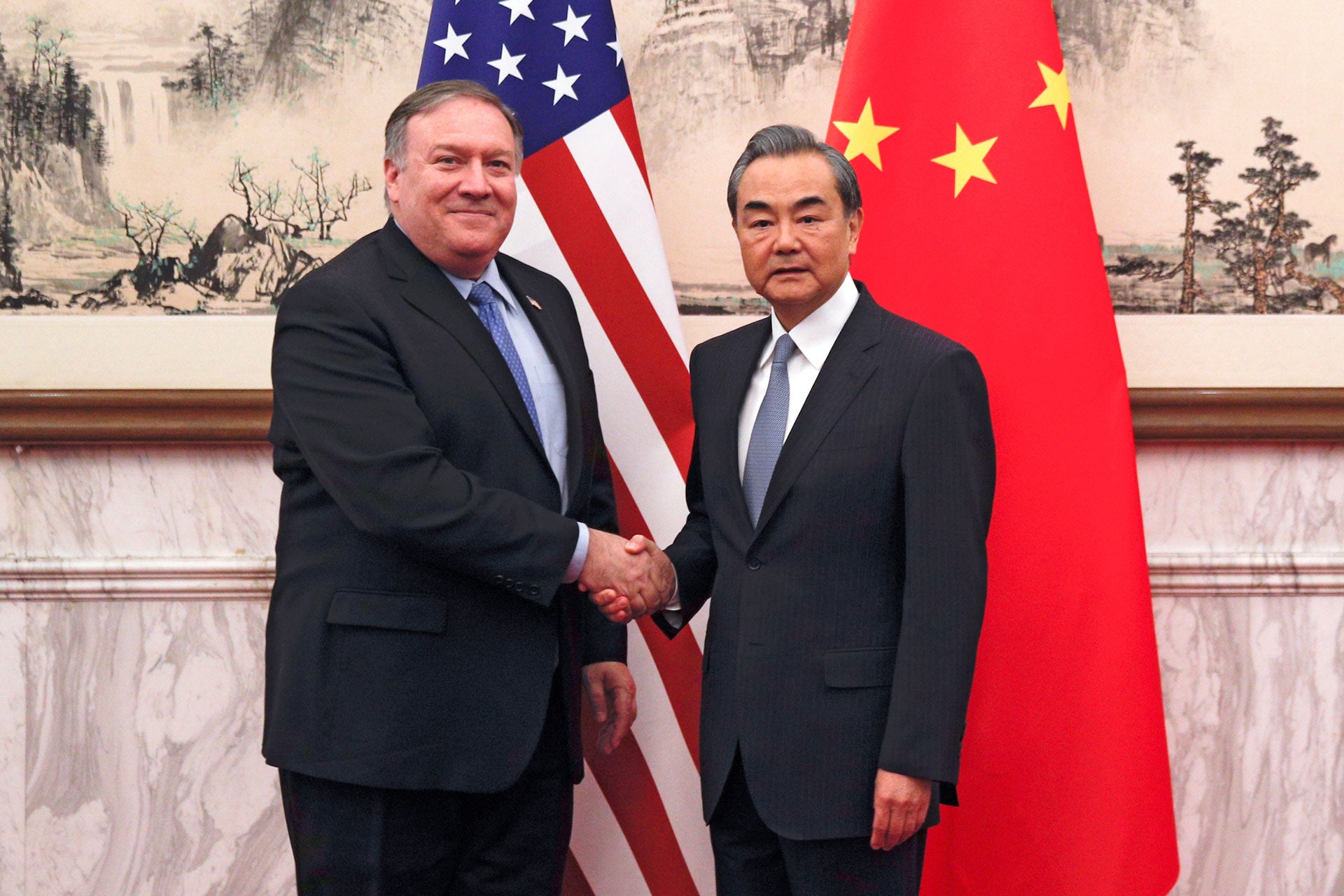US Congress, China, and COVID-19
US Secretary of State Mike Pompeo, left, shakes hands with Chinese Foreign Minister Wang Yi before their meeting at the Diaoyutai State Guesthouse in Beijing, October 8, 2018.

As the COVID-19 epidemic began to sweep across the United States in March, some members of Congress began drafting resolutions demanding the Chinese government be investigated and held accountable for the spread of the virus. On some basic facts, such as locating the first patients with the virus in Wuhan in December 2019, or the timing of Chinese authorities’ reporting to the World Health Organization, the draft resolutions were broadly accurate. But few members of Congress acknowledged the shocking death tolls, fear, and uncertainty that people across China have endured from the coronavirus, or other pressing human rights crises in China that also warrant urgent attention but remain unaddressed. Some members’ enthusiasm for criticizing Beijing is not matched with condemnations of threats and acts of racism in the US against people of Asian descent, including the repeated use of a racist language by the president, secretary of state, and other US officials to describe the source of COVID-19. What would a rights-respecting congressional resolution address? Members could express their condolences to and stand in solidarity with all those across China affected by COVID-19, including those who have spoken out against Chinese government censorship and suffered from official repression, including arbitrary arrests.
They should condemn all racist threats and acts against people of Asian descent, starting with the president’s rhetoric. Urging the Chinese government to provide compensation to all those in China affected by the failure of authorities to adequately protect citizens makes sense – if members commit to doing the same at home.
The newfound zeal for making Beijing answerable on COVID-19 should be matched with a commitment by the US to participate in international institutions that can hold states accountable for human rights violations. Ultimately it will be critical for Congress to pursue a bipartisan, well-informed, non-racist review of US-China policy and US foreign policy after the current crisis to ensure that the prevention of public health crises and the protection of human rights in both countries and globally is given central and paramount i.
Read the full article at the original website
References:
- https://www.hrw.org/news/2020/03/12/human-toll-chinas-coronavirus-control-efforts
- https://www.hrw.org/news/2020/01/30/china-respect-rights-coronavirus-response
- https://www.nytimes.com/2020/03/18/us/politics/china-virus.html
- https://www.cnn.com/2020/03/25/politics/g7-coronavirus-statement/index.html
- https://www.washingtonpost.com/nation/2020/03/09/coronavirus-wuhan-virus-gosar/
